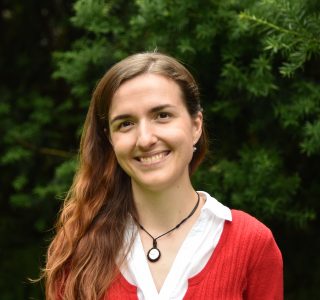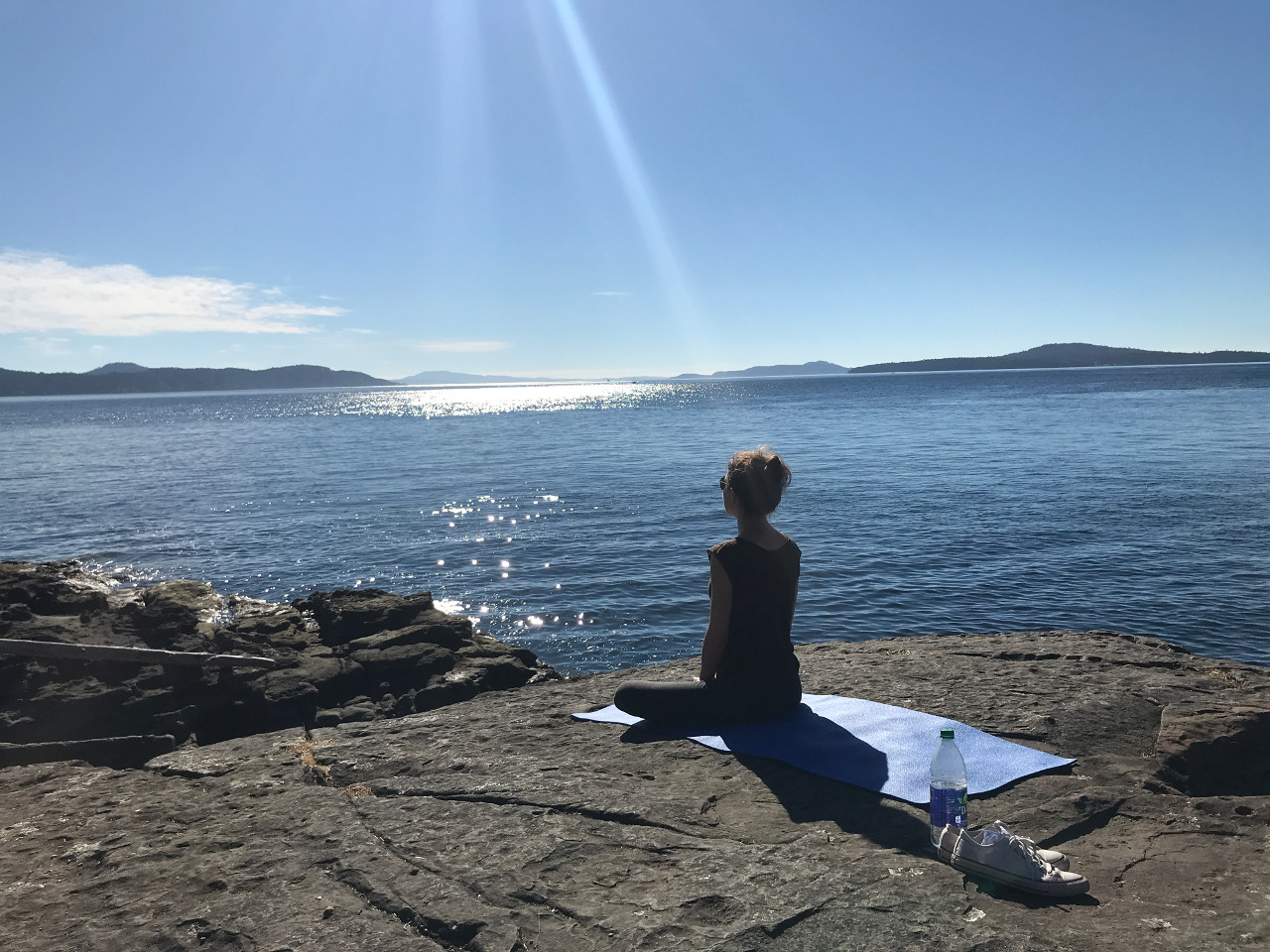About

Katarina Tabi, Ph.D. is a mindfulness teacher and a neuroscientist passionate about exploring the world and understanding the nature of life.
Katarina is a qualified Mindfulness-Based Stress Reduction (MBSR) teacher, trained by the University of Massachusetts Medical School, where the program was originally developed by Prof. Jon Kabat-Zinn. She teaches from the heart of her own practice which is nourished through daily practice and attending silent meditation retreats. Katarina has practiced and learned under the guidance of teachers including Saki Santorelli, Lynn Koerbel, Florence Meleo-Meyer, Tara Brach, Jack Kornfield, Eugene Cash, Andrea Fella, Sayadaw U Tejaniya, S.N.Goenka, Steve Armstrong, Rick Hanson, Sharon Salzberg, among others. Katarina is interested and open to a variety of techniques that help people cultivate awareness, well-being, resilience, and happiness. She seeks to understand them through the perspectives of both the evidence-based science and pure human experience supported by thousand-year-old practices.
Katarina has worked in the research of brain and mind most of her professional career. With a background in neuropsychopharmacology, the interest in questions what makes some people thrive and some people suffer, has led her to dive into the area of mental health. Her PhD project focused on e-Mental Health was exploring ways how technology can innovate and increase accessibility to mental health care. Katarina regularly attends research institutes and scholarly meetings focused on mindfulness-based interventions, mental well-being and resilience. At present, Katarina works as a Research Fellow at the University of British Columbia and BC Children’s and Women’s Hospital in Vancouver. Here she works with the Reproductive Mental Health Program and the BCCH Centre for Mindfulness, and focuses on parents, pregnant women, families during the postpartum period, teens, and youth, among others. Katarina designs new research projects and innovation strategies with the intention to help expecting and new families affected by mental issues live a healthier and happier life.

THE MORE PERSONAL VERSION
One of the many things I am grateful for is the sense of curiosity my parents and family have supported since my early upbringing. This allowed me to freely explore and create as a child and teenager as well as overcome most of that time period’s challenges with relative ease. Things started to fall apart when I first moved abroad at the age of 18 and enrolled in the university as an undergraduate student. Intense stress of different kinds (workload, feelings of not being good enough, social stress, deeper loneliness, fear of failure, wanting things to be different than they are, ruminating about all the decisions and thoughts over and over again, etc.) was overwhelming. I felt powerless. However, deep inside I felt there needed to be a different way to live this life than a constant stress and fear. I just had no idea how.
I simply started by beginning my days with focusing on simple slow movement. When all that matters is the movement. This allowed me to ground myself and appreciate the simple experience in my body and mind. I still maintain this practice today.
One day, during a family visit, I noticed a book lying on a table called Search Inside Yourself. From a pure curiosity, I gave it a try. The fact that the book was written by a pragmatic software programmer who referenced work by medical scientists whom I respect, worked well and convinced the strict evidence-oriented scientist inside me. I borrowed the book and read it. This was the beginning of my own journey into mindfulness, understanding the self and the mind.
For a long time, mindfulness was something I practiced and learned about for my own sake. Slowly but surely, it happened to be an important foundation of my life. Years later, I have decided to get a formal education in the topic and perhaps share the teachings with others, so they can benefit at least the same way I do.
The ongoing daily practice helps me to uncover and observe some of my deeply rooted tendencies and sometimes laugh or smile. Solid research backs what I see, firsthand, daily. Mindfulness helps rewire some of the old patterns. Seeing them more clearly with less of the stories and judgment. Practicing compassion and loving kindness bring another powerful quality into daily life.
I truly enjoy being in a forest or other outdoor places, dancing without given steps and generally moving the body (cycling, yoga, running, walking and hiking). The dance can get pretty wild sometimes. Not a bad balance to all the meditating ;)
